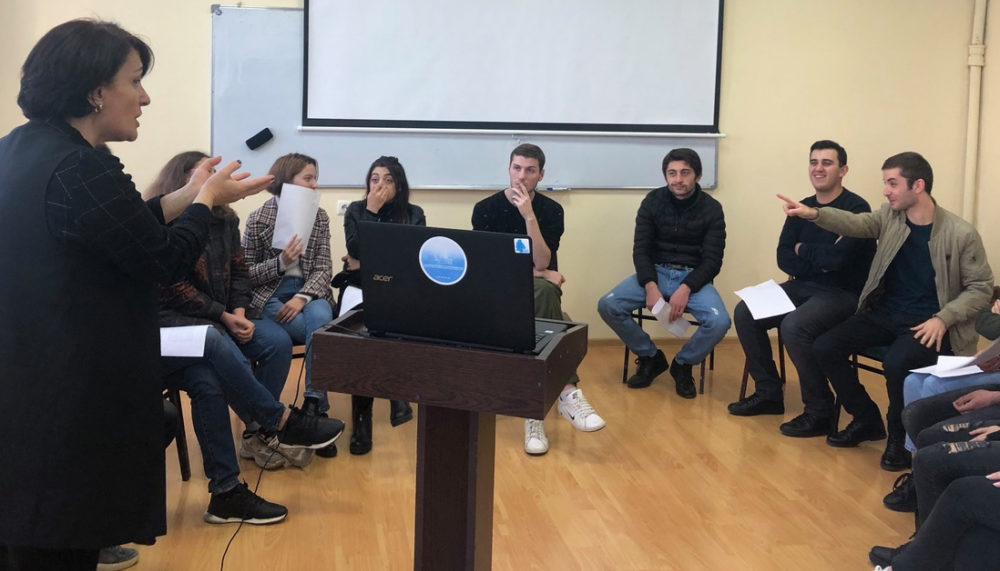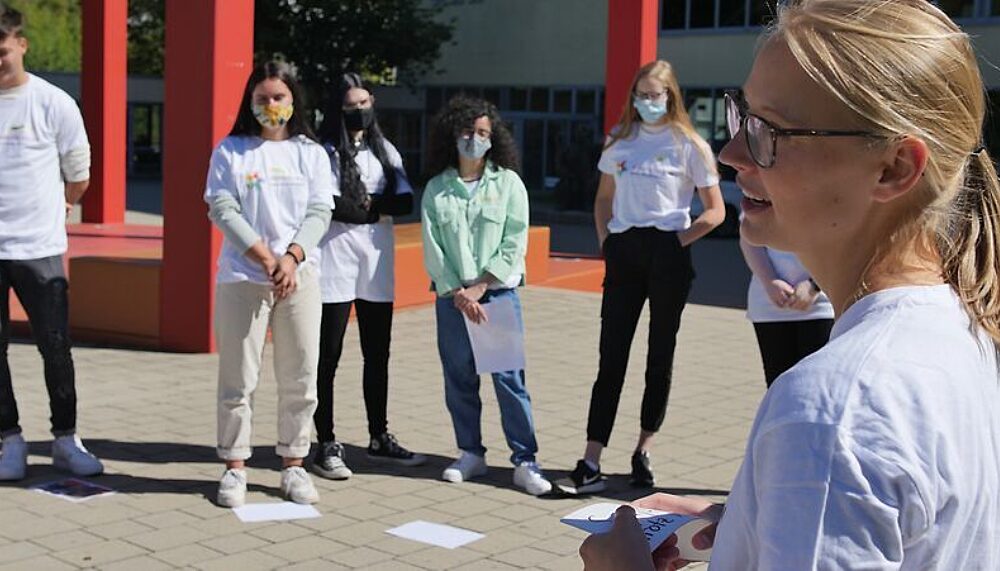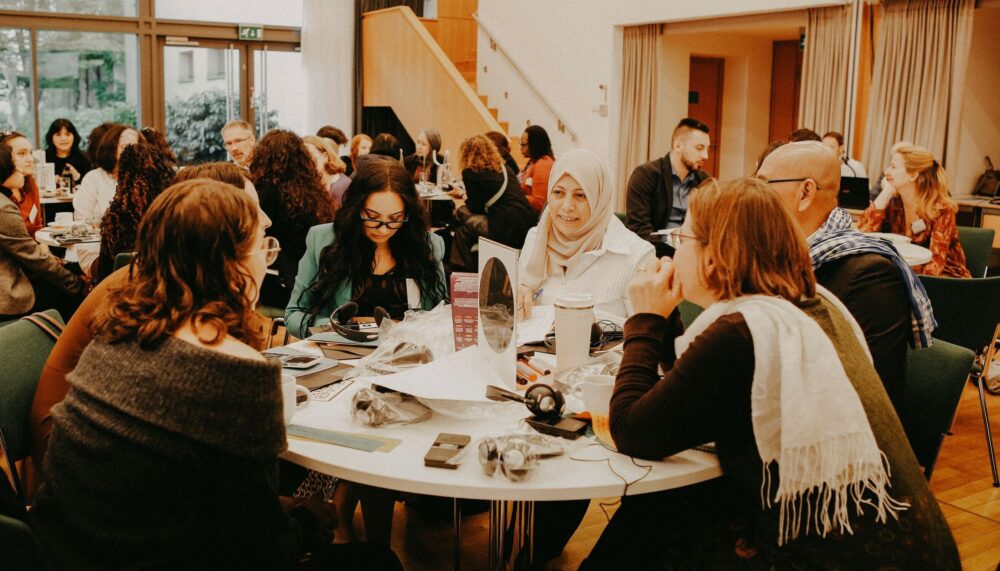Fostering reconciliation in the Georgian-Abkhazian conflict through an archive of memories
Since December 2023, Georgia has held official EU candidate status, a step unimaginable during its turbulent and violent history since independence in 1992, particularly amid the wars over Abkhazia and South Ossetia. The Georgian-Abkhazian war claimed the lives of around 10,000 people, including many civilians on both sides. It also led to the flight and displacement of nearly all Georgian residents and other ethnic groups from the region. As a result, Abkhazia lost more than 40 per cent of its population and of the original 250,000 Georgians who lived there, only about 50,000 have returned to this day. Three decades later, deep divides and unhealed grievances between Georgians and Abkhazians persist despite the many commonalities on both sides.
We believe that lasting peace can only be achieved through a reconciliation process in which past grievances are not denied but openly discussed and acknowledged by all. This is why, in 2014, we initiated a large-scale dialogue process about the region’s violent past, creating a path toward preventing future violence.
The biggest surprise for me was how positively you can use the past.
Workshop facilitator in Georgia
An archive of memories
As a first step of our dialogue process, we aimed to capture stories in order to share them with the other dialogue participants. Together with our local partners, we built an oral history archive containing about a thousand interviews with witnesses of the war, who share their stories from Georgian or Abkhazian perspectives.

Each of these interviews begins with the question, "Tell me about your life," allowing participants to share experiences openly and anonymously. This approach creates a safe space for respondents to share observations and reflections outside of established societal narratives. Anonymity also encourages participants to provide alternative perspectives that are often absent from mainstream discourses.
In both Georgian and Abkhazian societies, conflict narratives are largely shaped by political goals, such as restoring territorial integrity, leaving little room for narratives that challenge established views. Consequently, many feel isolated as their experiences do not fit narrow storytelling patterns, making public engagement difficult due to their fear of being misunderstood or rejected.
An Abkhazian war veteran who we interviewed, for example, felt safe to express guilt for having killed people, moving beyond the "hero status" of a veteran. This empathetic stance led to controversial discussions amongst Abkhaz participants in our programme, as it recognised the humanity in the “other side” – including former enemies.
Aslan, an Abkhaz veteran, shares how despite his horrendous experiences during the war, he managed not to think of Georgians as enemies anymore.
Internal dialogues and “travelling interviews”
After collecting the interviews, as a second step of the dialogue process, they were played to and discussed in groups consisting only of Georgian or Abkhaz. These groups are at the core of our dialogue process. Over the past five years alone, our team organised nearly 2,500 workshops with Georgians, reaching about 30,000 people, and over 1,500 workshops in different regions of Abkhazia with about 19,000 participants. We saw people of all ages and from different walks of life attend our sessions, which is a great testimony to people’s openness to commit to an open and genuine exchange about the country's past.
Our team organised 4,000 online workshops reaching 49,000 people in Georgia and Abkhazia.
The stories we collected range from ethnically Georgian inhabitants of Abkhazia, who are now living outside of Abkhazia as internally displaced people sharing their experiences during the war, to interviewees telling stories about their lives in the Soviet Union before Georgia's independence, or hospital staff recounting how they managed to keep the hospital operational during the war with a team consisting of people from different ethnicities.
Sharing the interviews before the different groups met allowed their stories to travel beyond ethnic divides. Workshop participants recognised both, how many diverse stories exist within their own community and among their former enemies. They also had a chance to familiarise themselves with “the others” experiences and realised that they shared common needs or trauma. The Abkhazian veteran's words, for instance, positively impacted Georgian listeners when they heard his story advocating for peace and for reaching out to “the other side.”
It fundamentally changed my view. At one of the meetings, when I was telling my story, I saw tears in the eyes of the Abkhaz mother. I realised that she was feeling the same as me.”
Workshop participant in Georgia
As a next step in the dialogue process, our team organised online workshops for the Abkhaz and Georgian groups to meet and exchange their stories directly. Thanks to the week-long preparations, they could dive into deep discussions about their shared history, challenging simplistic friend-enemy narratives beyond ethnic divides. Facilitating these dialogues online allowed us to reach tens of thousands of people, and it was a great success that many elderly people could attend the sessions. For many of them, it would not have been possible to travel abroad to attend in-person workshops, but their testimonies from the time of war in the 1990s were crucial to expanding mutual understanding and healing grievances.
Shared values and publicity
To ensure grievances could be reconciled on a larger societal scale, we expanded the dialogue to the public sphere. Collaborating with local radio and TV stations, we organised programmes where Georgian and Abkhaz participants shared their experiences using memories as a driver for rapprochement and reconciliation. These public formats allowed us to reach a wide audience and facilitate reconciliation, ultimately contributing to peace restoration within Georgia.
I like how the Berghof Foundation process works with the histories of ordinary people[…] whose fate has passed through the escalation of conflict, war and post-war destruction. [Sharing their stories provides an] opportunity for mutual understanding and empathy for what the Abkhaz or Georgian respondent is talking about.
Workshop participant in Georgia
Only when people acknowledge how they contribute to divisions can they begin to work toward a shared, peaceful future. Long-lasting peace requires collective effort and is sustained by those who recognise their role and play an active part in this process.
Through our oral history archive and dialogue initiatives, we have supported thousands of Georgians and Abkhazians in their efforts to bridge divides and foster mutual understanding between their communities. You can support this process by watching, commenting on, and sharing their stories.
Watch their stories
-
Tatuli's story
Tatuli recounts her childhood experiences as a Georgian refugee. -
Gia S.'s story
Gia S., a Georgian ex-combatant, shares his experiences. -
Asida's story
Find out what made Asida from Abkhazia think differently about the conflict. -
Nina's story
Nina, from Abkhazia, describes her evacuation. -
Nodar's story
Nodar, an Abkhazian ex-combatant, speaks about the lasting effects of conflict. -
Roza's story
Roza, a Georgian IDP, tells us what gave her hope. -
Gia A.'s story
Gia, Georgian historian, reflects on a visit to Abkhazia that surprised him.



